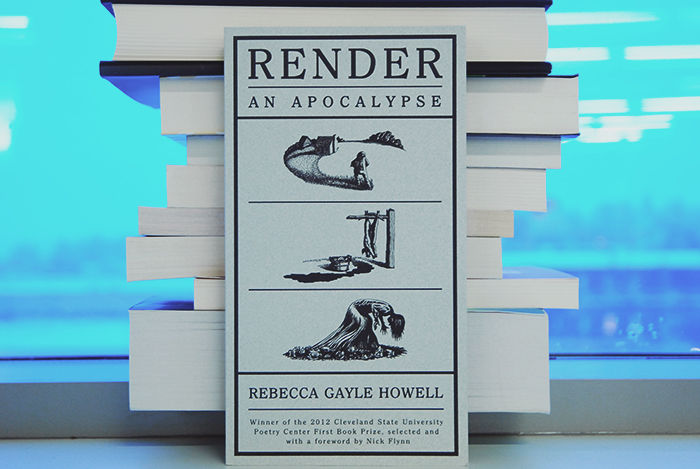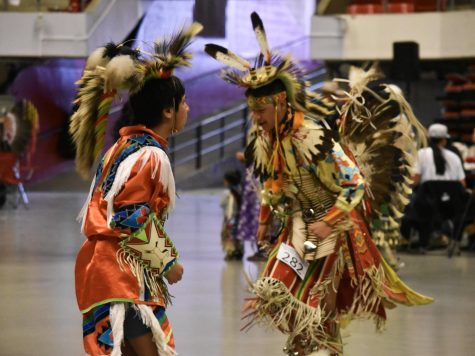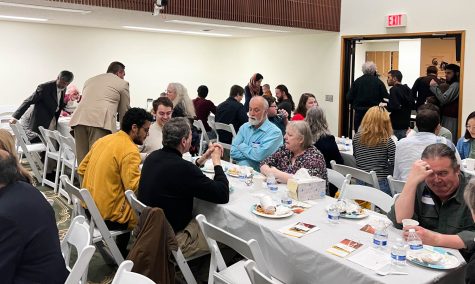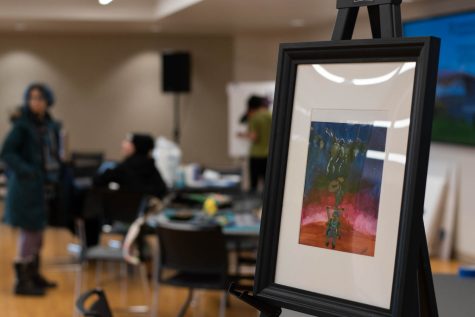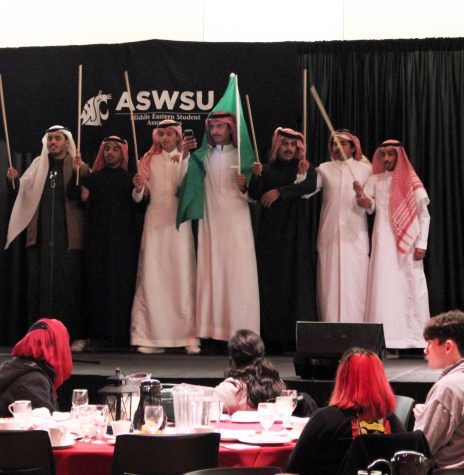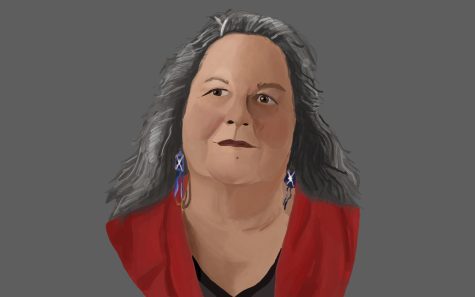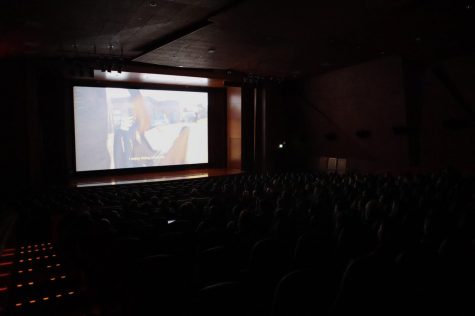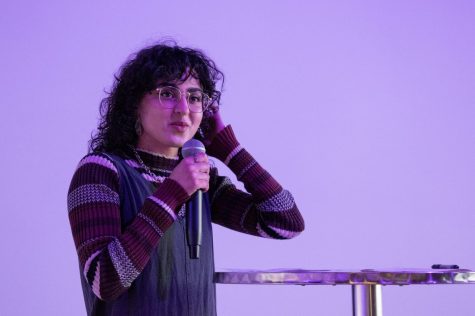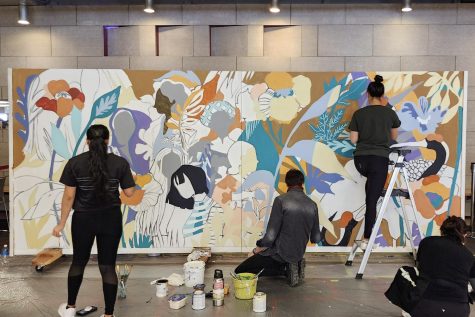Inspiring writers through poetry
“Render / An Apolalypse” is one of the poetry collections on the reading list for creative writing classes taught by Kimberly Burwick at WSU.
February 22, 2017
{{tncms-asset app=”editorial” id=”5a43cfd4-f8be-11e6-b20f-4f25989e6b42″}}
Whether developing skills in fiction, poetry or prose, emerging writers on campus can learn and gain inspiration from poetry readings.
This Thursday marks the WSU English department’s latest Visiting Writer Series. Rebecca Gayle Howell, Kentucky native and American poet, will conduct a poetry reading at the Museum of Art. Known for her poetry collection “Render / An Apocalypse” and the translation of “Hagar Before the Occupation / Hagar After the Occupation” into English, professors like Kim Burwick teach using Howell’s works in creative writing classes.
Howell got into poetry between 11 and 12 years old. She came from a working-class family where her mother read a lot. But her mother mostly read romance novels, which Howell didn’t have a great attention span for as a kid, she said.
Her father started buying her poetry books after he had to drive into the city for chemotherapy treatments. After his commute, he would stop at the local bookstore and pick up whatever poetry book was on sale, Howell said. From there, Howell fell in love with the art form and felt she found a forever friend in poetry. She spent time reading poetry aloud to herself and began to practice writing at that age, she said.
Even though she spent time practicing as a child, Howell said she did not get serious about writing poetry until about age 20. She took a class at the University of Kentucky with Nikky Finney, who was her first poetry teacher, Howell said.
“You knew, coming into her room, that you would do serious work,” Howell said, “that this was something bigger than yourself and that really spoke to me.”
In relation to speaking at the Visiting Writer Series and teaching in classrooms, Howell said she loves working with young writers. She began teaching at about 26 years old, she said. She has taught poetry most of her adult life and really loves it, Howell said. Howell thinks of it more as apprenticing emerging writers and helping them learn how to teach themselves, she said.
“I want to meet emerging writers on campus and hear why they came to writing,” Howell said. “I think poetry is very alive in this country right now. Poetry used to be centered in New York and that’s no longer true. And I’m very interested in how place influences a poet’s work and how we connect to the land around us.”
The first time Burwick read “Render / An Apocalypse,” she said it completely blew her away. She loved the language, and not many contemporary poem collections excited her like this did, Burwick said. After reading it, Burwick knew she had to use the poetry collection in her creative writing classes. Then, she wondered if she could get in touch with Howell to talk to her students.
Howell video-chatted with two of Burwick’s classes, Advanced Creative Writing: Poetry and Creative Writing: Poetry. Howell asked for no money or compensation and did this out of a desire to really show the students the book in its entirety, Burwick said.
In addition to “Render / An Apocalypse,” Burwick also began teaching “Hagar Before the Occupation / Hagar After the Occupation” last semester, which features the work of the Iraqi poet Hagar as she sees the world before and after U.S. occupation.
Since Burwick began teaching Howell’s work a few years ago, she kept in touch with Howell and spent time with her in person. Burwick found her as generous and delightful as her poetry, a rare combination, she said. Howell has immense talent with zero ego, which doesn’t happen often in the poetry world, Burwick said.
“Rebecca Gayle Howell’s poetry is raw in the best sense. It gets down to the heart of language without reducing its subject matter,” Burwick said. “It’s lyrical, it’s profoundly emotional, and it means something. There is a very real sense of the poet moving language around with the physical body as well as the intimate.”
For this Writer Series, students actually picked Howell to come, Burwick said. Former students of Burwick and students working on WSU’s LandEscapes rallied for Howell to come to campus, she said.
The English department often collaborates with other departments or colleges to bring in guests for the Visiting Writer Series. In the past, they have worked with the Honors College and the Student Entertainment Board (SEB). For Howell’s visit, they partnered with Lewis-Clark State College. The English department tries to bring in a diverse set of guests from all over the U.S. and beyond, Burwick said.
“Often, the Visiting Writer Series shows students that writers are not just textbooks in a library,” Burwick said. “They are real people who pay bills, have to put gas in their car and have daily struggles.”
Howell will teach Burwick’s Creative Writing: Poetry class on Thursday and will then travel to Lewis-Clark State College on Friday for an additional reading. Howell also has a new book coming out this month, titled “American Purgatory.” Pullman preludes her international poetry tour, where Howell will travel to the U.K. to debut her book, Burwick said.
Howell will speak at 5 p.m. tomorrow at the Museum of Art. There is no admission fee.


